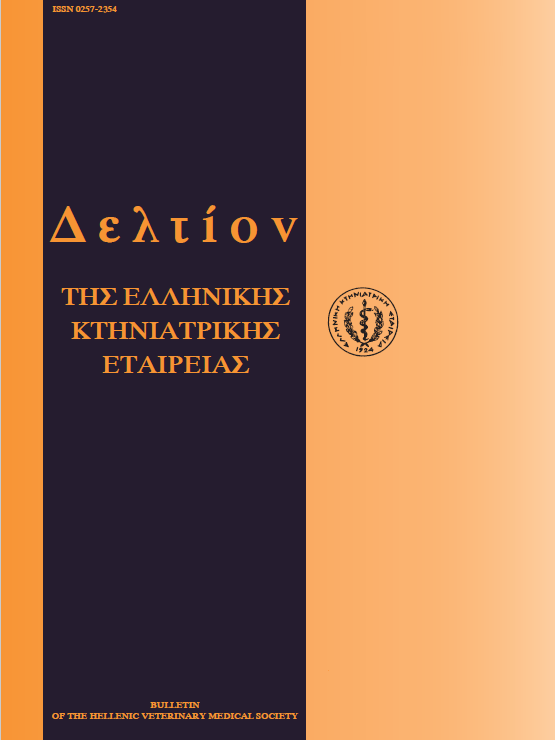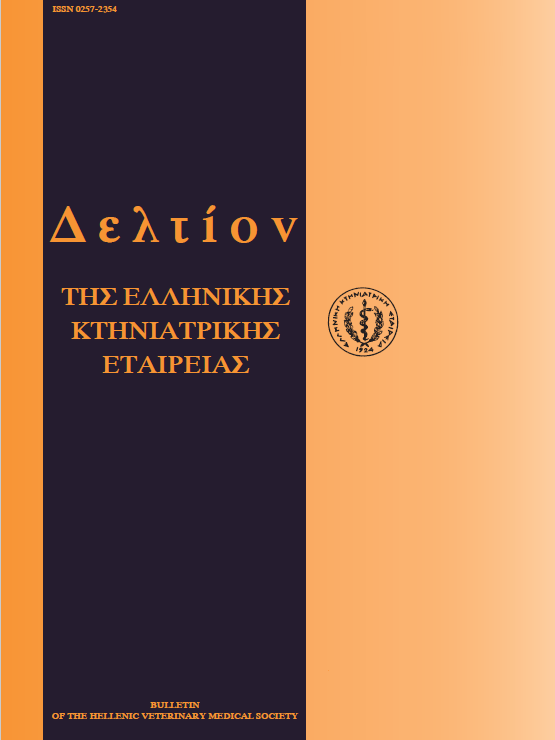The effect of sinefungin on the macromolecular biosynthesis of Leishmania species
Abstract
The aim of the work presented here was the in vitro study of the action of the antibiotic sinefungin on the macromolecules DNA, RNA and the proteins of different isolates of Leismannia spp. in relation to the resistance or to the sensitivity of the strains examined. The mode of action of sinefungin of the Leishmania strains was detected by incorporating radiolabeled thymidine, uridine and leucine into promastigote forms, to study the synthesis of DNA, RNA and proteins respectively. In the sensitive strain L. tropica a statistically significant reduction of the rate of incorporation of thymidine to the DNA of the parasite, resulted to a 64% inhibition of leishmanial DNA synthesis by sinefungin at a concentration of 2.6 mM, when the time of action of the drug was 24 hours. In the sensitive strain L. tropica the reduction of the rate of incorporation of thymidine was depended on the concentration and the time of action of the drug. No inhibition of leishmanial RNA synthesis was observed. Our research showed that the action of the antibiotic sinefungin to the macromolecular biosynthesis of the protozoan Leishmania is independent of the strain and is strongly related with the expression of the sensitivity and the resistance of the strain. The main target of the antibiotic examined was the DNA of the Leishmania strains sensitive to the drug.
Article Details
- How to Cite
-
TZORA (Α. ΤΖΩΡΑ) A., LAWRENCE, F., & ROBERT-GERO, M. (2018). The effect of sinefungin on the macromolecular biosynthesis of Leishmania species. Journal of the Hellenic Veterinary Medical Society, 49(2), 137–142. https://doi.org/10.12681/jhvms.15765
- Issue
- Vol. 49 No. 2 (1998)
- Section
- Research Articles

This work is licensed under a Creative Commons Attribution-NonCommercial 4.0 International License.
Authors who publish with this journal agree to the following terms:
· Authors retain copyright and grant the journal right of first publication with the work simultaneously licensed under a Creative Commons Attribution Non-Commercial License that allows others to share the work with an acknowledgement of the work's authorship and initial publication in this journal.
· Authors are able to enter into separate, additional contractual arrangements for the non-exclusive distribution of the journal's published version of the work (e.g. post it to an institutional repository or publish it in a book), with an acknowledgement of its initial publication in this journal.
· Authors are permitted and encouraged to post their work online (preferably in institutional repositories or on their website) prior to and during the submission process, as it can lead to productive exchanges, as well as earlier and greater citation of published work.




